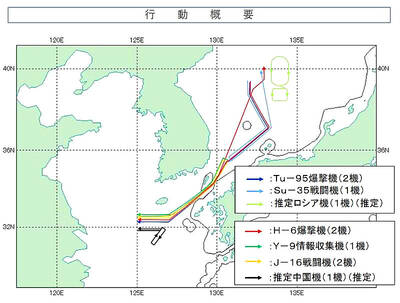President Ma Ying-jeou’s (馬英九) definition of cross-strait ties as “special” reflects his long-standing pragmatic approach toward China that aims to avoid confrontation with Beijing on the sovereignty issue, a US expert in cross-strait affairs said on Thursday.
“Ma is walking a fine line between not accepting the PRC’s [People’s Republic of China’s] definition of the relationship as ‘domestic’ on the one hand, and not insisting that cross-strait ties be treated as ‘international’ on the other,” said Alan Romberg, senior associate and director of East Asian Studies at the Washington-based Henry L. Stimson Center.
Romberg was commenting on a statement made by Ma during a recent interview with the leading Mexican daily El Sol de Mexico, in which he defined ties between Taiwan and China as “special relations” and not “between two states.”
Romberg said that Ma pointed out he is the democratically elected head of government of a sovereign state, but also spoke of the respective “authorities” on each side of the Strait because he knew there was no constructive purpose in insisting that Beijing deals with Taipei as a sovereign government and that forcing the issue would lead to confrontation.
Chinese President Hu Jintao (胡錦濤) seems willing to take a parallel approach, while making no compromise in terms of the PRC’s “one China principle,” Romberg said.
“The whole ‘art’ of Ma’s policy and indeed of Hu Jintao’s is to yield nothing in principle but to try to avoid counterproductively pushing one’s own position on the other side,” he said.
Such an approach is seen in the use of the general characterization the so-called “1992 consensus” by the two sides in handling the question of the term “one China,” so that they can avoid confronting the differences of definition, he said.
However, with Ma having repeatedly emphasized the connection between Taiwan’s “international space” and the quality of cross-strait relations, an important test of the success of this approach will come on the “international space” issue, Romberg said.
If China seeks to limit Taiwan’s international participation simply because it does not want to allow Taipei to have “too much access” to international organizations in any form, progress in cross-strait ties will inevitably slow down, he said.
However, if China is only trying to test whether Taiwan really challenges Beijing on the issue of sovereignty, the opportunity for greater international participation for Taiwan will open up, given the Ma administration’s willingness to avoid such challenges, he said.

The Mainland Affairs Council (MAC) on Friday condemned Chinese and Russian authorities for escalating regional tensions, citing Chinese warplanes crossing the Taiwan Strait’s median line and joint China-Russia military activities breaching South Korea’s air defense identification zone (KADIZ) over the past two days. A total of 30 Chinese warplanes crossed the median line of the Taiwan Strait on Thursday and Friday, entering Taiwan’s northern and southwestern airspace in coordination with 15 naval vessels and three high-altitude balloons, the MAC said in a statement. The Chinese military also carried out another “joint combat readiness patrol” targeting Taiwan on Thursday evening, the MAC said. On

Singapore is to allow imports of Taiwanese raw pork for the first time in 15 years, the Ministry of Agriculture said yesterday. The Singapore Food Agency has approved imports of fresh pork produced by New Taipei City-based Cha I Shan Foods, which had obtained a Hazard Analysis and Critical Control Points (HACCP) certification from the ministry to export to Singapore, it said. The ministry said it had hoped Singapore would permit Taiwanese fresh pork imports in addition to processed pork products. Singapore agreed to accept Taiwanese fresh pork after completing a document review and a virtual tour of Cha I Shan Foods’ packing

‘FACT-BASED’: There is no ban, and 2 million Taiwanese have traveled to China this year, which is more than the 285,000 Chinese who visited Taiwan, the council said The Mainland Affairs Council (MAC) yesterday accused China’s Taiwan Affairs Office (TAO) of shifting the blame for Beijing’s tourism ban on Taiwan, continuing a war of words that started in the past week. The council’s remark came hours after its Chinese counterpart on Friday accused the government of creating barriers to the resumption of reciprocal group tours across the Taiwan Strait. The TAO accused the MAC of releasing untruthful information and dragging its feet on the tourism sector’s call to establishing ferries linking Pingtung County to China’s Pingtan Island. The MAC failed to respond to overtures to restore direct flights and raised the

Taipei Mayor Chiang Wan-an (蔣萬安) yesterday said the city “does not tolerate violence” after the Taipei City Council reported death threats over a planned screening today of a documentary on alleged forced organ harvesting in China. The council’s report follows a flurry of similar threats targeting theaters and institutions screening the documentary, titled State Organs, which accuses Chinese officials of harvesting organs from incarcerated dissidents and Falun Gong members. Democratic Progressive Party (DPP) city councilors who planned to screen the film told a news conference earlier yesterday that the organizers of the screening had received a threat of a knife attack signed